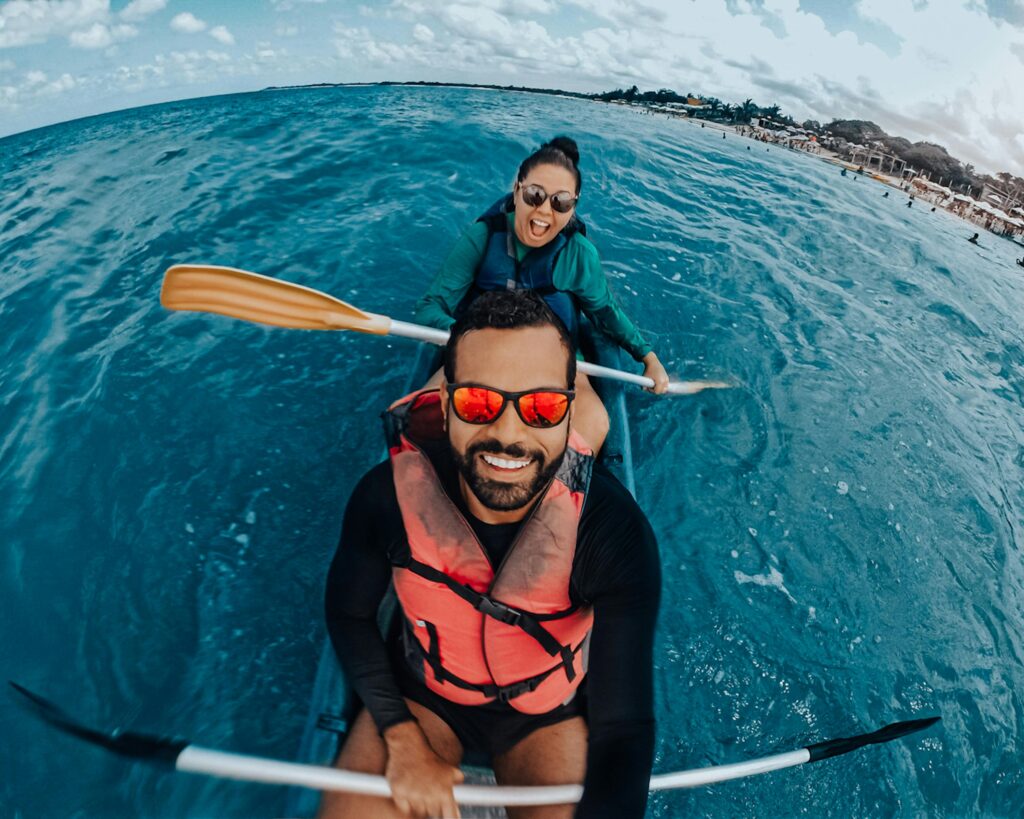9 Lakes, travel planning
Eye Care Tips for Playing on the Water
With spring in full bloom and summer ahead, visitors are looking forward to whitewater and boating season officially kicking off in the 9 Lakes Region of East Tennessee. Water-loving adventurers can indulge in paddling, kayaking, rafting, and tubing amidst the lush scenery and flowing streams. From the Obed to the upper Pigeon River, there’s something for everyone who enjoys a good splash.
That said, whitewater and lake season isn’t just a time to let loose and have fun. As with any activity, it requires a level of safety and compliance so that everyone enjoys their experience. One aspect that whitewater fans shouldn’t scrimp on is eye safety. After all, with all the elements involved here, good vision is important for everyone to have the best time. Aside from following the rules and decorum discussed by your guide, here are a few more tips to observe.
Use protective eyewear
Protective eyewear is a valuable part of your whitewater gear besides the life jacket and helmet. While out on the lakes, you’re exposed to sun, sediment, water, and wind. This is all part of the experience, of course, but they can be potentially risky for the eyes. Unfortunately, experts share that less than 35% of people wear eye protection when doing any sport.
To protect against this, invest in eyewear like sunglasses, as these can provide an extra barrier for your eyeballs. Just make sure to choose lenses that are scratch-resistant so you don’t have to worry about breaking them. If you can, getting polarized lenses is another bonus, as they reflect harsh glare that can compromise your vision. Should you need vision correction, there are also prescription sunglasses.
Available among major brands like Ray-Ban, these can use a variety of lenses—like single vision, progressive, concave, and more—to correct vision errors while still offering UVA and UVB protection.
These can also be upgraded with the aforementioned polarized coatings to block glare. The American Academy of Opthalmology says that up to 90% of eye injuries can be prevented with protective eyewear, which further underscores why you should bring these along.
Avoid contact lenses
On the other hand, you want to avoid wearing contacts. The CDC estimates that about 45 million people wear contacts in the US, and this is mostly due to their convenience. Not only do they provide a seamless field of vision, but they’re less likely to fog or fall off than glasses. Lenses like Biofinity Multifocal contacts, for instance, can work for multiple distances without slipping off thanks to their rounded edge-fit. As such, many might think they’re perfect for whitewater activities.
Despite these benefits, contact lenses are not a good fit for water activities. When contacts get wet, this water may breed bacteria and fungus. If you’re using them in great bodies of water, such as lakes, they can also trap sand and other fine particles against your eyes. This can cause various issues ranging from itching to corneal abrasions. Even in the event that your contacts don’t capture anything foreign, they’re likely to get splashed in whitewater.
Unfortunately, contacts are rather sensitive, and exposure to any liquid outside of contact solutions can impact their efficacy later on. All in all, it’s best to err on the side of safety and just go with glasses.
Don’t forget your sunscreen
Using sunscreen is a definite non-negotiable, especially if you’ll be spending any time outdoors. When doing whitewater activities, sunscreen is extra important as the water reflects and intensifies UV rays. Having said this, don’t forget to apply sunscreen around and on your eyelids.
Plenty of people mistakenly assume that there’s no need to use sunscreen around the eyes since the skin here is not as exposed, especially since the eyes are kept open and the lids folded back.
In reality, though, this area has some of the thinnest and most delicate skin. So, on top of wearing protective gear like the aforementioned eyewear and helmet, you want to apply sunscreen on your eyes, too. Since lots of sunscreens can make the eyes feel heavy or painful, opt for a non-irritating mineral sunscreen. Unlike chemical sunscreens, mineral ones only contain physical sun blockers that typically sting the eyes less. Their consistency is usually also on the thicker side, so they’re less likely to travel into your eyes. Brands like Badger also make sunscreens that are vegan, organic, and lake-friendly, so they are safe for whichever waterway you visit.
Come for an adventure and ready to play with these tips.
Comments are closed









